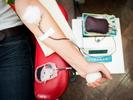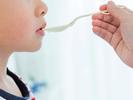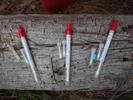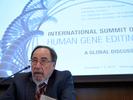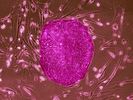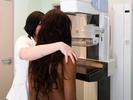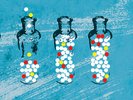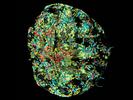Rob Stein appears in the following:
Giving Birth Outside A Hospital Is A Little Riskier For The Baby
Wednesday, December 30, 2015
A big study finds the risk that the baby will die soon after delivery is twice as high if the delivery was planned for home or a birthing center versus the hospital, but such deaths are very rare.
Researchers Find Lapses In Hospitals' Policies For Determining Brain Death
Monday, December 28, 2015
Most hospitals don't require neurologists, neurosurgeons or even fully trained doctors to make the ultimate call.
Childhood Asthma Rates Level Off, But Racial Disparities Remain
Monday, December 28, 2015
For the first time in decades, the number of children with asthma isn't increasing, federal scientists report. But cases continue to rise among African-American children and poor children.
FDA Lifts Ban On Blood Donations By Gay And Bisexual Men
Monday, December 21, 2015
For three decades, men who have sex with men were barred from ever donating blood. A new policy will allow gay and bisexual men to donate, but only if they've been celibate for at least a year.
Limits Urged On The Use Of Codeine To Stop Kids' Coughs And Pain
Thursday, December 10, 2015
Codeine can trigger rare, but life-threatening, breathing problems in kids. Food and Drug Administration advisers want to more tightly restrict the drug's use by anyone under 18.
Tiny Witnesses: Microbes Can Tell When A Murder Victim Died
Thursday, December 10, 2015
When bodies decompose, the types of bacteria on and around the body change in predictable ways. These patterns can be used to estimate time of death, a crucial clue in solving murders.
Is It Safe For Medical Residents To Work 30-Hour Shifts?
Monday, December 07, 2015
Young doctors being trained at dozens of hospitals around the country are being asked to work up to 30 hours straight as part of a study. Critics say the study is risky and unethical.
Scientists Debate How Far To Go In Editing Human Genes
Thursday, December 03, 2015
The unusual meeting was called to consider a ban on certain uses of a new technique that can make precise changes in DNA. The main concern is altering genes in human sperm, eggs and embryos.
International Summit To Debate Editing Human DNA
Tuesday, December 01, 2015
Hundreds of scientists from around the world are participating in a three-day summit in Washington, D.C., to discuss the promises and dangers of powerful new gene editing techniques.
A Controversial Rewrite For Rules To Protect Humans In Experiments
Wednesday, November 25, 2015
One revision would crack down on studying tissue and blood samples without getting a person's consent. Another change would make it easier to conduct studies in many locations at once.
Prostate Screening Drops Sharply, And So Do Cancer Cases
Tuesday, November 17, 2015
A decrease in PSA testing came after a controversial recommendation against routine screening. As a result, many fewer cases of the most common cancer to hit men are being diagnosed, research finds.
Should Human Stem Cells Be Used To Make Partly Human Chimeras?
Friday, November 06, 2015
The National Institutes of Health has issued a moratorium on funding work that puts human stem cells into nonhuman embryos. The concern is that hybrids might develop human brain cells, sperm or eggs.
Powerful 'Gene Drive' Can Quickly Change An Entire Species
Thursday, November 05, 2015
A genetic engineering technique raises hopes for eliminating diseases, such as malaria. But it is also sparking fears of unintended consequences if delicately balanced ecosystems are disrupted.
In Reversal, Death Rates Rise For Middle-Aged Whites
Monday, November 02, 2015
A rise in suicides plus an epidemic of overdoses from prescription painkillers and heroin are key factors that have undone a long-term improvement in death rates. A weak economy may have contributed.
Most E-Cigarette Users Are Current And Ex-Smokers, Not Newbies
Wednesday, October 28, 2015
A large study suggests some may use e-cigarettes to quit smoking tobacco. But the survey also shows that nearly 10 percent of young adults who have never smoked tobacco have used the devices.
American Cancer Society Changes Mammogram Guidelines
Tuesday, October 20, 2015
For years, it's been saying women should get annual mammograms starting at age 40. Now it says they can start at 45 — and then cut back to every other year starting at age 54.
Cancer Group Now Says Most Mammograms Can Wait Till 45
Tuesday, October 20, 2015
The American Cancer Society says new research supports changing the age at which most women should start getting yearly mammograms. But the group's latest advice still conflicts with other guidance.
Dietary Supplements Send Thousands To ERs Yearly
Wednesday, October 14, 2015
More than 23,000 Americans end up in emergency rooms each year after taking dietary supplements, an analysis shows. Most cases are linked to weight-loss products or energy-boosting supplements.
The Bacterial Cloud We All Carry Could Be As Unique As A Fingerprint
Sunday, October 11, 2015
Copyright 2015 NPR. To see more, visit http://www.npr.org/.9(MDEwODYxNTQyMDEzNjAxODk2Nzc2NzNmYQ001))
9(MDEwODYxNTQyMDEzNjAxODk2Nzc2NzNmYQ001))
Scientists Grow Primitive Human Kidneys In A Dish
Wednesday, October 07, 2015
Scientists have tried for years to grow artificial kidneys in the lab. They've gotten a bit closer by using stem cells to create an "organoid" much like a fetal kidney. But it's missing key parts.




